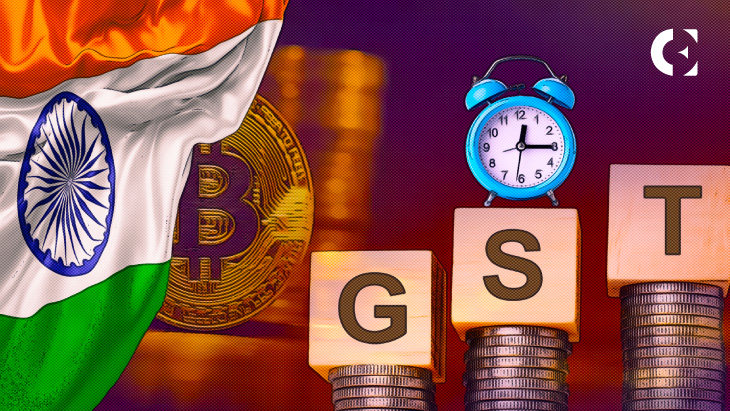- The CBIC is yet to conclude how to classify certain areas of crypto transactions.
- Transactions between parties outside of crypto exchanges and crypto mining are difficult to classify.
- Officials believe there is a need for international collaboration in forming crypto laws to avoid regulatory arbitrage.
The Indian Central Board of Indirect Taxes and Customs (CBIC) is yet to conclude how to classify certain areas of crypto transactions. These are areas not mainly involved with the sales of goods and the delivery of services. As a result, there is a delay in applying the Goods and Services Tax (GST) to such segments of the crypto industry.
According to reports, investigations on correctly categorizing such transactions are ongoing. The classification of transactions involving the transfer of crypto assets between parties outside of crypto exchanges and the mining of crypto assets are classic examples of areas that have proven to be complicated.
Official sources have stated that the lack of clarity over categorizing such transactions is why the regulators have yet to establish a unified policy for the entire industry. This lack of clarity stems from the fact that in a tax-related issue, such classifications will play critical roles in interpreting the taxation laws.
The government’s direct tax framework already captures certain areas of crypto transactions. Since April 1, 2022, a 30% tax has become applicable to income or capital gain from crypto transactions. A 1% tax deducted at source (TDS) also applies to payments of virtual assets exceeding 10,000 rupees, equivalent to $121 annually.
The existing tax law also recognizes digital assets transactions as independent entities, where the gains from another cannot offset losses acquired from one. However, the tax laws only capture some aspects of the industry.
According to an unnamed official, the regulators cannot make policy clarification in areas that have yet to be clarified. Doing so will amount to going against established principles. However, he made a note of ongoing efforts to find a straightforward solution.
Meanwhile, India’s Minister of State for Finance, Pankaj Choudhary, has stated the need for international collaboration in forming crypto laws to avoid regulatory arbitrage. He noted the borderless nature of crypto assets as a reason for his opinion. He believes the only way to achieve effective legislation around cryptocurrency is with significant international collaboration.
Disclaimer: The information presented in this article is for informational and educational purposes only. The article does not constitute financial advice or advice of any kind. Coin Edition is not responsible for any losses incurred as a result of the utilization of content, products, or services mentioned. Readers are advised to exercise caution before taking any action related to the company.







